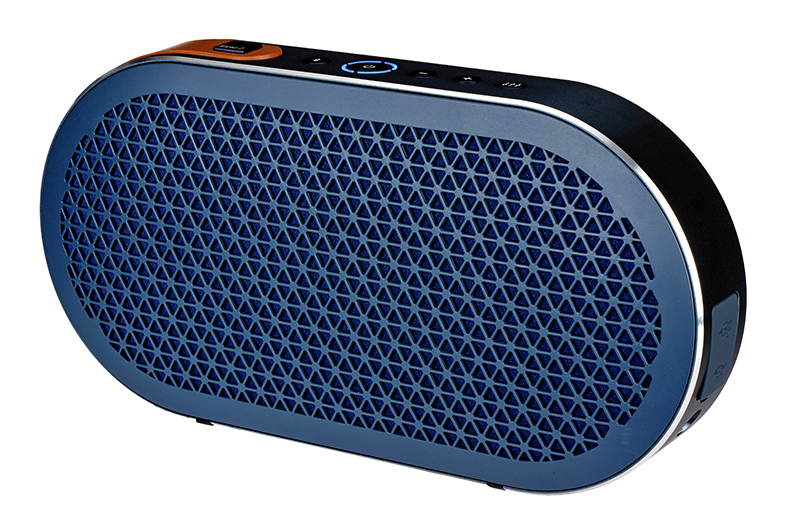Like a political ad campaign aimed at attracting the youth vote, Dali has continued swapping Cs for Ks in the title of its latest wireless speaker offering, the Dali Katch.
Video review
Build
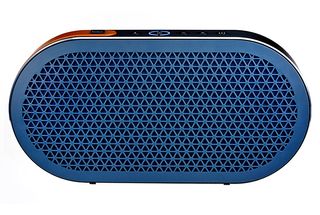
Placing the Katch on the table in front of us, we get our first feel of what £330 buys you; satisfyingly weighty, but not forgoing its portability, and seemingly robust while remaining easy on the eye.
It’s less industrious looking than its Dali bedfellow, the Award-winning Dali Kubik, with an oval face and retractable handle that’s more than a tad reminiscent of Bang & Olufsen’s stylish BeoPlay A2.
MORE: How to choose the right wireless speaker
Features
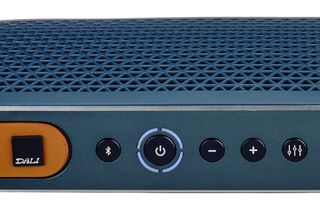
Inside are two 21mm soft-dome tweeters and a pair of aluminium woofers measuring almost 9cm. There's a set of each firing from the front and rear, driven by a Class-D amplifier which Dali claims is capable of outputting 2 x 25W of power.
A swift glance across the top of the speaker and you’ll find buttons for power, volume and pairing via Bluetooth 4.0 with aptX, which is made even swifter with the option of NFC.
You’ll also notice an EQ button, which toggles between the Dali Katch’s two placement profiles: one for freestanding play – on a table or whatnot – and another for a shelf that uses walls to reflect the sound and utilise its position.
MORE: What is AptX HD Bluetooth?
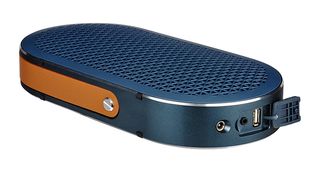
If you don’t want to play your music via Bluetooth, Dali has also included a 3.5mm aux connection, and there's a USB connector into which it suggests plugging a Chromecast Audio dongle to integrate your home network.
And let’s not overlook battery life: Dali says just two hours of charge is sufficient for up to 24 hours of wireless music playback.
Safe to say that if this Dali’s sound matches its build and spec sheet, we’ll have a very competitive product.
MORE: Google Chromecast Audio review
Sound
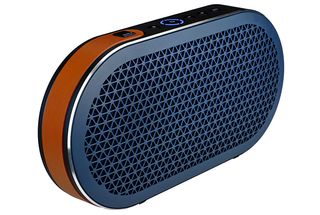
To find out, we connect a Mac via Bluetooth, which is easily found and connects automatically each subsequent time both devices are powered on.
We load up Tidal to play Godspeed You! Black Emperor’s Asunder, Sweet and Other Distress and are taken aback with each bar of the drum kit’s crescendo that starts the album on Peasantry or ‘Light! Inside of Light!’
Not only because the Dali Katch seemingly always has room to go further, defying its size with colossal thumps, but also because dynamically it fills us with anticipation for the grimy waltz-like riff that is to come.
MORE: Best portable speakers

When that riff finally arrives, the Dali is far from overawed by the track’s demanding instrumentation; there’s plenty of detail picked out from sawing guitars and multi-tracked strings, digging deep into the soil of wails and drones that tail off each phrase.
The size of the sound is quite simply incredible for something of the Katch’s stature.
There are further adventures in detail and dynamics with the record’s second track, Lambs’ Breath. At only eight seconds shy of ten minutes, and composed entirely of unsettling drones, it is decidedly not an easy listen.
MORE: Best wireless speakers 2016
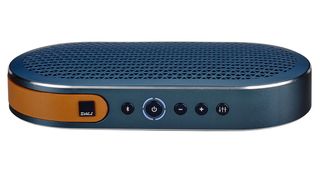
Often we might consider it too harsh a task for a portable wireless speaker, even one costing this much; they’re really just for spitting out dance music at parties, right?
But this Dali Katch speaker is fantastically aware of the subtleties of each sustain, showing it has the versatility to go big on the first track, and also analyse the slowly moving tides of this one.
Let’s not get carried away, you won’t be replacing your entire hi-fi with this one speaker, but you’ll certainly be clearing bookshelves to find it a permanent home.
MORE: Best Bluetooth speakers 2016
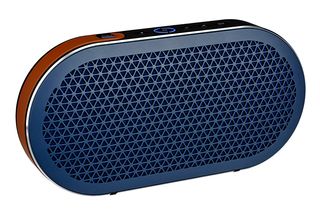
Switch to Ghostpoet’s remarkable Shedding Skin and Dali’s aptitude is proven to go beyond the instrumental.
Obaro Ejimiwe’s vocal delivery is characteristically relaxed, but the Katch still gives it a velvety, expressive dimension, not to mention loads of body.
Harmonies on tracks such as Be Right Back, Moving House are spacious enough to pick out different vocal timbres but tied together smoothly to deliver a real, immersive sound.
Verdict
When we first tested the Katch, we already had an inkling that the Award-winning KEF Muo might be in trouble, but we weren’t sure just how much until we set the pair head-to-head.
Dali has improved on pretty much every aspect of KEF's standard; and that is not to do the Muo a disservice, only that the Katch has raised the bar so significantly in the same way KEF did before it.
The current Award-winning Dali Katch isn’t cheap, but this is definitely a case of getting what you pay for.
See all our Dali reviews
